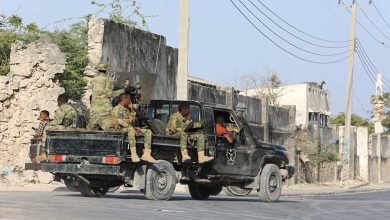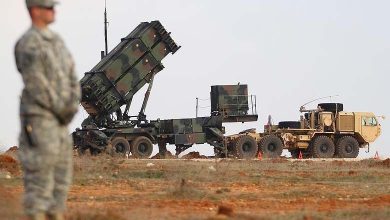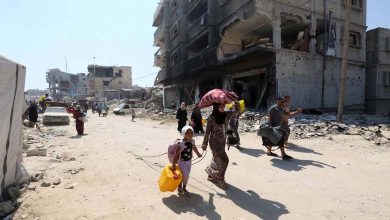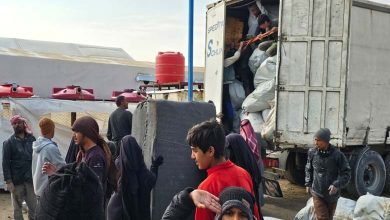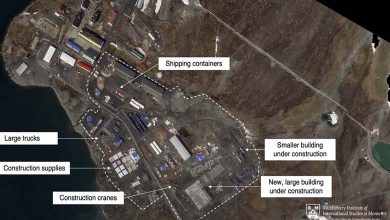The bodies of war victims in Sudan sound the alarm worldwide
Environmental and Humanitarian Catastrophe: The Corpses of War Victims in Sudan Sound the Alarm in the World
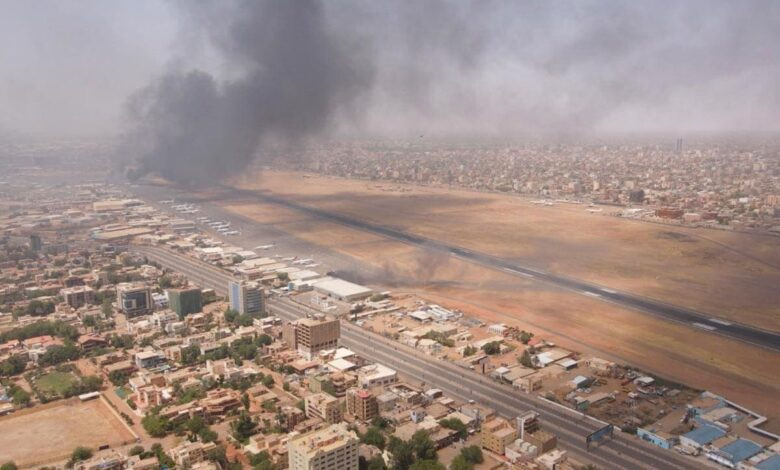
The discovery of a mass grave containing 87 individuals in the Darfur region of Sudan represents another atrocity in an ongoing brutal conflict that has been ravaging the country for the past three months. It echoes the heinous horrors of Sudan’s recent past and serves as a major environmental and humanitarian catastrophe that will forever be etched in human history.
Brutal Massacres
According to the British newspaper “Global Eco,” just two years ago, Sudan began an initial success story after years of conflict, the killing of hundreds of thousands of civilians, and decades of dictatorship. However, since April, the conflict between the army and the quasi-military Rapid Support Forces has dashed Sudan’s hopes for a democratic future, created a humanitarian crisis, and threatened fragile regional stability.
A series of ceasefire negotiations failed to contain the violence, which escalated with the fighting, offering little hope of ending the brutality. United Nations investigators announced the discovery of the mass grave on Thursday, on the eve of mediation efforts hosted by Egyptian President Abdel Fattah el-Sisi. El-Sisi and other regional leaders met in Cairo in an attempt to prevent the conflict in Sudan from spreading and further destabilizing neighboring countries. There are high hopes for Egypt’s ability to contain the violence, as it is seen to possess strong and highly influential diplomatic tools.
A Dire Humanitarian Situation
The grave atrocities uncovered by human rights groups in Darfur reflect the brutal massacres, with many victims being killed directly, while others met an even more brutal fate. They were left wounded in the streets, unable to move, until they met their tragic end. Among them are children.
The United Nations High Commissioner for Human Rights, Volker Türk, stated, “I strongly condemn the killing of civilians and individuals unable to fight, and I am appalled by the brutal and disrespectful treatment of the deceased, their families, and their communities.”
A Reflection of History
The mass grave in western Darfur is a grim reminder of the painful past the state has experienced, particularly in 2003, after an uprising by the local population and the Sudanese government’s brutal suppression of the civilians. This led to the death of hundreds of thousands and the displacement of over two million people. The conflict officially ended in Darfur in August 2020 with a peace agreement between rebel groups and the transitional government, but violence has persisted, targeting ethnic minorities, and thousands of people remain displaced.
Egypt’s Potential Role
The significant efforts made by Egypt to intervene and end the conflict stem from the fear of violence spreading to neighboring countries and an increase in the number of refugees seeking shelter. Egypt has received over 256,000 Sudanese individuals so far, and the borders continue to receive hundreds of displaced people daily. Egypt is considered the ideal and safest destination for Sudanese fleeing the conflict.
The conflict in Sudan poses a threat to the fragile stability witnessed in Ethiopia, Chad, and Eritrea. The instability in Sudan has the potential to escalate violence and exacerbate humanitarian crises in neighboring countries. Even before the conflict erupted in April, hundreds of thousands of Sudanese refugees had already entered Chad. However, vast areas of the country are already facing a crisis due to poor crops and internal instability.
Violent Conflict’s Impact
The mass grave discovered in Darfur is evidence of the targeted violence against non-Arab ethnic groups, echoing the brutality witnessed in Darfur two decades ago. The International Criminal Court had accused former Sudanese President Omar al-Bashir of committing crimes against humanity, and it declared war crimes and genocide in Darfur. The court intends to investigate the recent killings in Darfur, along with reports of mass rape, gender-based terrorism, and crimes against children.
Spread of the Conflict
Meanwhile, the British newspaper “The Independent” affirms that Egypt’s major attempts to intervene in ending the conflict are driven by the fear of violence spreading to neighboring countries and the increase in the number of refugees seeking shelter on its lands. Egypt has received over 256,000 Sudanese individuals so far, and the borders continue to receive hundreds of displaced people daily. Egypt is considered the ideal and safest destination for Sudanese fleeing the conflict.
The conflict in Sudan poses a threat to the fragile stability witnessed in Ethiopia, Chad, and Eritrea. The instability in Sudan has the potential to escalate violence and exacerbate humanitarian crises in neighboring countries. Even before the conflict erupted in April, hundreds of thousands of Sudanese refugees had already entered Chad. However, vast areas of the country are already facing a crisis due to poor crops and internal instability.
The Brutality of the Conflict
The mass grave discovered in Darfur is evidence of the targeted violence against non-Arab ethnic groups, echoing the brutality witnessed in Darfur two decades ago. The International Criminal Court had accused former Sudanese President Omar al-Bashir of committing crimes against humanity, and it declared war crimes and genocide in Darfur. The court intends to reinvestigate the killings in Darfur, in addition to reports of mass rape, gender-based terrorism, and crimes against children.
Violation of Humanitarian Standards
The British newspaper “Telegraph” reports that the Darfur mass grave violates international humanitarian standards, particularly considering the evidence of preventing civilians from collecting and identifying their deceased loved ones, as well as the burial methods that comply with international humanitarian law and local customs.
The presence of the mass grave reflects the violence targeted against non-Arab ethnic groups, reminiscent of what Darfur experienced two decades ago. The International Criminal Court had accused former Sudanese President Omar al-Bashir of committing crimes against humanity, and it declared war crimes and genocide. The court intends to reinvestigate the killings in Darfur, in addition to reports of mass rape, gender-based terrorism, and crimes against children.
The Conflict’s Wider Implications
The conflict’s implications are dire, as it continues to inflict immense suffering on the Sudanese people. While the conflict parties direct their weapons at each other, it is ultimately the Sudanese people who bear the cost. Hundreds of families have no escape, and death becomes their only solace. Reports from human rights organizations and the United Nations reveal that hundreds have met their demise after enduring their severe injuries on the streets.



